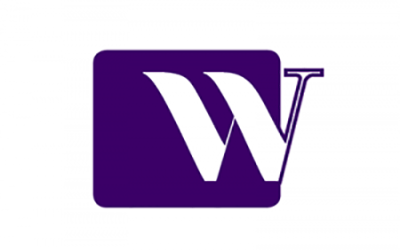Nathaniel Nelson / Winonan
Winona State University assembled a Digital Citizenship Task Force in January to help introduce new technology-focused lessons into college curriculum.
The task force meets every few weeks to discuss what they might need to implement in the fall. By May, the group should have a full plan ready to present before the faculty.
Kenneth Janz, associate vice president for academic affairs and chief information officer at Winona State, is in charge of the task force.
According to Janz, the task force was formed in response to the varying degrees of technological education in Winona State programs.
“There’s a lot of unevenness in student experience when it comes to these issues,” Janz said. “Some majors have a great job of making sure students have that built into the curriculum. Other majors don’t touch it at all.”
The task force focuses on three aspects: digital etiquette, digital literacy and digital hygiene.
According to communications study professor and task force member Tammy Swenson-Lepper, all three of the facets are important to student education.
“I think it’s so important because we spend so much of our lives online, and there are so many ways that we can effect each other,” Swenson-Lepper said.
The first of the three, etiquette, focuses on how one acts online. More precisely, it involves how one interacts with other people. Swenson-lepper said this goes beyond simple comment sections and social media and can be utilized in today’s connected society.
“We have to start thinking about how do we use technology well, and not let it overtake us or be a tool to hurt other people,” Swenson-Lepper said.
Digital literacy encompasses education of how to use online resources. Swenson-Lepper said literacy includes everything from library databases, to correct source citations, to correct email composition and even the creation of websites.
Janz said the literacy aspect will be one of the most important additions for students, especially after college.
“When you graduate from Winona State University, those are the skills that we want you to know,” Janz said.
The final focus of the task force is digital hygiene. Hygiene deals with a student’s ability to manage their identity and information online.
Janz said many students need to learn what is truly private online and what is not, otherwise problems can surface and cause real-world ramifications.
“Sometimes students, especially in professional programs, don’t understand the long-term harm that can cost them getting a job with just a simple way they interact on social media,” Janz said.
The task force is still in its early days, but according to Janz, discussions are going smoothly. The task force should have full recommendations for faculty in May, before implementing the recommendations in November or December.
That said, Janz added, there is much more to be done. After the task force determines recommendations to teach students, they will move on to faculty and staff. Just as students need digital citizenship education, much of the staff at Winona State also needs some guidance.
“This is just the first part of a many time process,” Janz said.
Before the task force begins to think about the future, they first have to teach Winona State students the skills they need to survive in a technology-oriented world.
“This is a new field, this is a new area,” Janz said. “We need to start thinking holistically about how we communicate these things to our students.”








































